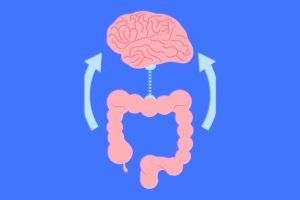In recent years, the discussion around ultra-processed foods has gained significant traction in the health and nutrition community. With the rise of convenience foods and busy lifestyles, these products have become staples in many households. However, they often carry a controversial reputation, leading many to question: Is there a uniform health risk associated with ultra-processed foods? This article delves deep into the complexities of ultra-processed foods, examining their health implications and addressing the variability in risk.
What Are Ultra-Processed Foods?
Ultra-processed foods are defined as industrial formulations made entirely or mostly from substances extracted from foods or derived from food constituents, often containing little or no whole food. These products typically include additives such as sweeteners, preservatives, colorings, flavorings, and emulsifiers. Examples include:
- Sugary Beverages: Soft drinks, energy drinks, and sweetened coffees.
- Packaged Snacks: Chips, candy bars, and flavored nuts.
- Ready-to-Eat Meals: Instant noodles, frozen pizzas, and microwaveable dinners.
- Processed Meat Products: Sausages, hot dogs, and deli meats.
The convenience and affordability of ultra-processed foods make them attractive to consumers, especially in today’s fast-paced world. However, their impact on health is the subject of intense scrutiny.
The Health Risks Associated with Ultra-Processed Foods
1. Nutritional Imbalance
One of the primary concerns regarding ultra-processed foods is their nutritional composition. These products are often high in added sugars, unhealthy fats, and sodium while being low in essential nutrients such as vitamins, minerals, and fiber.
- High Sugar Content: Many ultra-processed foods are laden with sugars, particularly fructose and sucrose. Research has linked high sugar intake to obesity, type 2 diabetes, and cardiovascular diseases. The World Health Organization (WHO) recommends limiting added sugars to less than 10% of total daily energy intake.
- Unhealthy Fats: Trans fats and saturated fats, commonly found in ultra-processed snacks and fried foods, can increase LDL cholesterol levels, leading to heart disease and stroke.
- Excess Sodium: High sodium content in processed foods is associated with hypertension (high blood pressure), which increases the risk of heart disease and stroke.
2. Weight Gain and Obesity
Numerous studies indicate a correlation between the consumption of ultra-processed foods and weight gain. A systematic review of available research found that individuals who consume high levels of ultra-processed foods are at a greater risk of developing obesity. This is due to several factors:
- Caloric Density: Ultra-processed foods are often calorically dense, meaning they contain more calories per volume than whole foods. This can lead to overeating as individuals may consume more calories than intended.
- Low Satiety: Many ultra-processed foods lack fiber and protein, which are essential for feeling full. As a result, individuals may consume larger quantities to satisfy their hunger.
- Eating Habits: The convenience of ultra-processed foods often leads to mindless eating and snacking, further contributing to excessive calorie intake.
3. Increased Risk of Chronic Diseases
Research suggests that regular consumption of ultra-processed foods is associated with an increased risk of several chronic diseases:
- Cardiovascular Diseases: A diet high in ultra-processed foods has been linked to an increased risk of heart disease. Studies have shown that individuals who consume more than four servings of processed foods per day have a 70% higher risk of developing cardiovascular issues.
- Type 2 Diabetes: The high sugar and unhealthy fat content in many ultra-processed foods can lead to insulin resistance and higher blood sugar levels, increasing the risk of type 2 diabetes.
- Cancer: Some studies have suggested a connection between the consumption of ultra-processed foods and certain types of cancer. The International Agency for Research on Cancer (IARC) has classified processed meats as a Group 1 carcinogen, indicating sufficient evidence that they can cause cancer.
Not All Ultra-Processed Foods Are Created Equal
While the health risks associated with ultra-processed foods are significant, it’s essential to recognize that not all products in this category pose the same threats. Several factors influence the health implications of ultra-processed foods:
1. Ingredient Quality
The health risks of ultra-processed foods can vary based on the quality of their ingredients. Products made with whole food ingredients or fortified with vitamins and minerals may provide some nutritional benefits.
- Fortified Products: Some ultra-processed foods, such as breakfast cereals, are fortified with vitamins and minerals, potentially offering a nutritional advantage. These can be beneficial for individuals who struggle to meet their nutrient needs through whole foods alone.
- Healthier Options: Many companies now offer “healthier” versions of ultra-processed foods, such as baked snacks instead of fried ones, or reduced-sugar versions of sweetened beverages. These options can reduce health risks when consumed in moderation.
2. Consumption Patterns
The way individuals incorporate ultra-processed foods into their diets plays a critical role in determining their health impact. Occasional consumption of these foods may not pose significant risks, especially if balanced with whole, nutrient-dense foods.
- Moderation is Key: It’s crucial to consider the overall dietary pattern rather than focusing solely on individual food items. A diet rich in whole foods, fruits, vegetables, lean proteins, and whole grains can offset some of the negative effects of consuming ultra-processed items occasionally.
- Mindful Eating: Practicing mindful eating can help individuals make better food choices. Paying attention to hunger cues and portion sizes can mitigate the risks associated with ultra-processed foods.
3. Individual Health Factors
Each person’s health status, genetics, and dietary needs influence how ultra-processed foods affect them. Factors to consider include:
- Pre-existing Conditions: Individuals with conditions such as diabetes, hypertension, or obesity may need to be more cautious with their consumption of ultra-processed foods due to their higher susceptibility to health risks.
- Genetics: Genetic factors can play a role in how individuals metabolize different foods. Some people may be more sensitive to the effects of sugars and unhealthy fats, making them more vulnerable to the adverse health impacts of ultra-processed foods.
Strategies for Healthier Choices
To minimize the health risks associated with ultra-processed foods while still enjoying the convenience they offer, consider the following strategies:
1. Read Labels Carefully
When shopping, it’s essential to read labels to understand what you’re consuming. Look for products with:
- Minimal Ingredients: Choose items with fewer ingredients, ideally ones that you recognize and can pronounce.
- Low Sugar and Sodium: Aim for products with lower added sugars and sodium content. The American Heart Association recommends no more than 6 teaspoons of added sugar per day for women and 9 teaspoons for men.
- Healthy Fats: Opt for foods containing healthy fats, such as those from nuts, seeds, and avocados, rather than trans or saturated fats.
2. Incorporate Whole Foods
Prioritize whole, unprocessed foods in your diet. Fill your plate with:
- Fruits and Vegetables: Aim for a variety of colors and types to ensure you get a wide range of nutrients.
- Whole Grains: Choose whole grains like brown rice, quinoa, and whole wheat bread over refined grains.
- Lean Proteins: Incorporate lean protein sources such as poultry, fish, beans, and legumes.
3. Practice Meal Planning
Planning meals in advance can help reduce reliance on ultra-processed foods. Consider these tips:
- Prepare Meals at Home: Cooking at home allows you to control the ingredients and portion sizes, leading to healthier meals.
- Batch Cooking: Prepare large portions of meals to freeze and reheat later, ensuring you have nutritious options on hand.
- Healthy Snacks: Keep healthy snacks readily available, such as fruits, nuts, yogurt, and vegetables, to reduce the temptation of grabbing ultra-processed options.
4. Stay Informed
Being aware of nutrition trends and research can empower you to make informed choices about your diet. Follow reputable sources, such as nutritionists, dietitians, and public health organizations, to stay updated on the latest findings related to ultra-processed foods.
Conclusion
While ultra-processed foods often come under fire for their potential health risks, it’s crucial to approach this topic with nuance. Not all ultra-processed foods are created equal, and their impact on health varies significantly based on ingredient quality, consumption patterns, and individual health factors.
By adopting a balanced approach to nutrition, focusing on whole foods while being mindful of ultra-processed options, individuals can mitigate health risks and enjoy the convenience of modern food products. Ultimately, education and awareness are vital in navigating the complex landscape of ultra-processed foods and making choices that align with one’s health goals.




